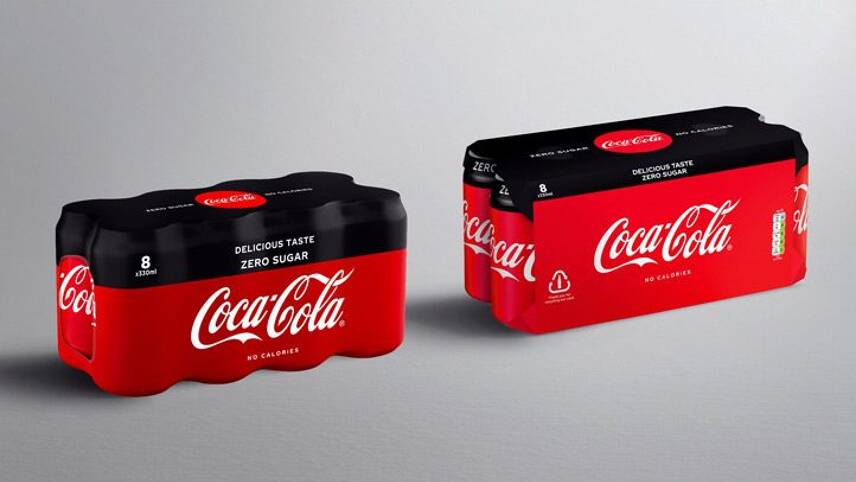Register for free and continue reading
Join our growing army of changemakers and get unlimited access to our premium content

The announcement will build into a wider initiative across Western Europe that will remove 4
Coca-Cola European Partners (CCEP) will replace plastic shrink wrap across its four, six and eight-packs of cans for all its brands sold in the UK, including Fanta, Sprite, Dr Pepper and Lilt. Over the next 18 months, the plastic packaging will be replaced with cardboard, which is already used for multipacks of 10 or more cans.
According to CCEP, more than 30 million packs sold to consumers each year will no longer be wrapped in plastic. Instead, the multipacks will be packaged in 100% recyclable cardboard from Forest Stewardship Council (FSC) or Programme for the Endorsement of Forest Certification (PEFC) certified sources.
CCEP’s Great Britain vice president Leendert den Hollander said: “We want to make it as easy as possible for consumers to recycle our packaging after they’ve enjoyed our drinks. All our cans are 100% recyclable but we know it is a challenge for consumers to recycle the plastic we use for our multipacks. By replacing shrink-wrap with cardboard, which is collected by virtually every household system in the country, we are eliminating a hard-to-recycle material from our supply chain.
“Changing all our canning lines over the next 18 months is a complex project. But we believe it is the right thing to do and we would encourage others in the sector to follow our lead.”
While the shrink wrap currently used is recyclable, it is estimated that only 10% of UK local authorities collect the material. In comparison, 98% of cardboard is collected as part of household recycling.
The announcement will build into a wider initiative across Western Europe that will remove 4,000 tonnes of plastic from circulation across the region.
CCEP used 27.6% recycled content in its plastic bottles last year – more than ten times the beverage sector’s global average proportion of 2-3%. According to CCEP’s recent integrated annual report, the company is on track to meet its recycled content aim after signing a deal with Loop Industries to secure a continuous and secure flow of high-grade recycled PET (rPET). The agreement with Loop Industries will see the firm purchase 100% recycled PET (rPET) plastic.
Plastic polluter
The news comes as parent firm The Coca-Cola Company is aiming to make all bottles globally with an average of 50% recycled content by 2030, up from its 2017 proportion of 7%.
However, several of the company’s largest market arms and bottlers, including Coca-Cola UK and CCEP, have set more ambitious targets, with these two bodies targeting 50% by 2020 and 2025 respectively.
Information disclosed through the Ellen MacArthur Foundation’s New Plastics Economy Global Commitment spring 2019 report found that Coca-Cola used three million tonnes of plastic in its global operations in 2018. This figure accounts for both virgin and recycled plastics.
The company was named as the world’s largest corporate plastic polluter last year, in a report from Greenpeace. Over the course of 239 clean-ups in 42 countries across six continents, volunteers collected more than 180,000 pieces of plastic. According to the report, packaging produced by Coca-Cola, PepsiCo, and Nestlé collectively accounted for 14% of the branded items retrieved during the clean-ups.
In related news, Coca-Cola Amatil (CCA), the parent company’s largest Australian bottler, has pledged to double the amount of recycled plastic it sources for inclusion in plastic bottle production. The commitment will see CCA, which is the largest soft drinks bottler in Australia, incorporate more than 10,000 tonnes of pre and post-consumer recycled (PCR) plastics in its range of bottles annually by 2020.
This move will enable the company to produce all bottles with a capacity of 600ml or less using 100% recycled plastic, while also doubling the proportion of recycled content in all other bottle ranges.
Earlier this year, Coca-Cola Great Britain announced it had extended a project to place onsite reverse vending machines for plastic bottles at major UK attractions including Alton Towers Resort, Thorpe Park, and Legoland Windsor, after a trial collected more than 26,000 bottles last year.
Matt Mace


Please login or Register to leave a comment.